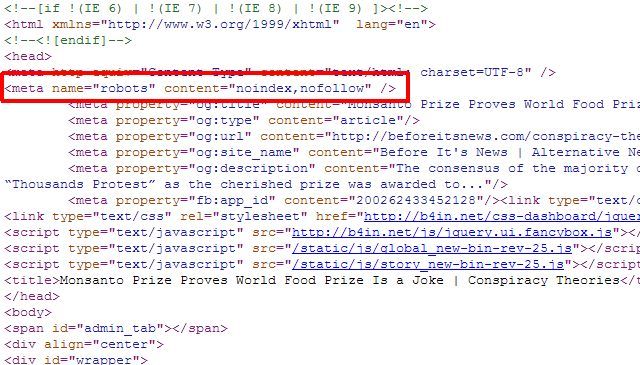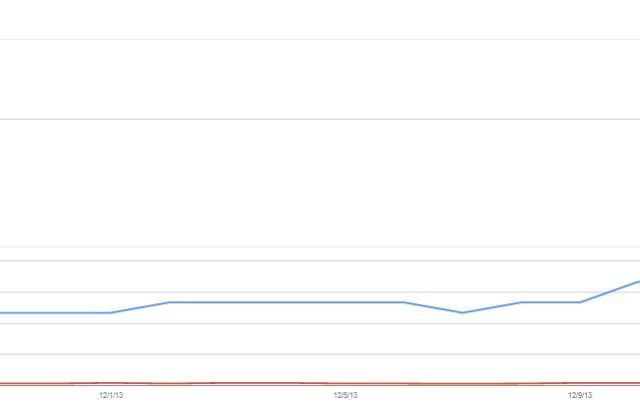Let's say you ask two friends for financial advice. The first friend works at a fast-food restaurant, but is a self-proclaimed financial genius. The second friend is modest, but ten different people have told you he's a financial wizard, and he has given you fantastic advice in the past. Which advice would you take more seriously?
The truth is that links on the Internet are like credibility in real life. The more credible people who legitimately link to you, the more you are "viewed" by search engines as an influential source of information on the Web.
However, you have to weigh the costs of getting a link from external websites. Many people jump on syndication deals, thinking that it'll get their stories in front of a large audience, and it'll get them a link back from an authoritative source. This seems logical, until suddenly that syndication partner is listed higher than you in search results for a story that you originally wrote!
How can this happen? Why isn't Google smart enough to see that your article is the original? Unfortunately, Google is not smart enough unless the website doing the syndicating plays by the rules. Unfortunately, most do not.
Giving Credit Where Credit Is Due
Having worked in the field of SEO for nearly a decade now, I can say without hesitation that journalistic integrity when it comes to crediting sources has taken a complete nose-dive on the Internet, when compared to the old days of print journalism.
Today, you can find countless blogs stealing content from other blogs, without even citing the original source of the information. Even major news organizations will lift story ideas from smaller bloggers and then run with the story as though it was their own idea. The idea of a "scoop" is no longer who publishes it first -- it's when the largest website, with the largest audience, publishes it first.
This is why syndication can help a small blogger compete, because when you publish a story on your site and distribute your blog content, it'll get syndicated out to websites that have a much larger audience than your own site -- and you get credited with the story. This is what I've actually done for my own blog, by syndicating through larger conspiracy-related websites like BeforeItsNews.com. Here's an example of one of those story excerpts with a link back to my site.
This should be SEO gold-dust right? Well, not quite. When you syndicate, you really need to work out the deal carefully ahead of time, before allowing a site to syndicate your content. BeforeItsNews is very flexible and open to new ideas, so this situation wasn't bad at all in the end. However, when I first agreed to let them syndicate, I had gained assurances there would be a link back to my site. The problem was that I later discovered the link back wasn't a real link back, it was what Google has termed a "tricky redirect".
A redirect basically bounces the link to another page on the syndication partner's own website, and then that single page links to your site. While it's great to get even one link from a reputable website, this approach is actually bad and it's dishonest to Google. The reason being that for specific articles, Google looks at the link back to the original source to decide who the original author/article is. If there's no direct link back, and if the original syndication site has a higher page rank (authority) than you do (such as in this case), Google will assume the syndication website is the original source, and it will display higher than you in search results, even when people search for the exact title of your article!
This is a major failure on Google's part -- assuming a site with "higher authority" is the source of the original article - alas, this is what Google currently does. It's a flaw, but it's one you have to deal with if you're a smaller blog or website.
Making Sure Google Knows You're The Original Source
So, when you're working out syndication deals, my advice is that you refuse all requests to syndicate your content unless the syndication website is willing to add the canonical tag when they link to your website:
<link rel="canonical" href="http://www.my-awesome-website.com/my-story1.html">
This link element should be added to the <head> section of the non-canonical (syndication partner's) version of your article. The details of how to properly do this is explained on Google Webmaster Tools.
In recent years, Google has experimented with having folks use meta tags like "syndication-source" and "original-source". However, from my own experience and tests I've read others conduct, such meta tags have little to no impact on ranking or search position (yet).
Since my own syndication partner refused to change their tricky redirect approach, and were not willing to add the "canonical" tag or meta tags to their page, I threatened to pull out of our agreement unless they at least told Google not to index their original syndicated page.
How does this work? Well, all the syndication partner has to do is add the following line to the header section of the originating page.
<meta name="robots" content="noindex,nofollow" />
That looks something like this:
This tells Googlebot that you don't want the page itself listed in Search results. Google will honor that request, as we found out from our own testing. For example, for most of our articles after I agreed to let BeforeItsNews syndicate my content, the syndicated BeforeItsNews page was getting listed in search results above our own original article! It was a tragic situation and revealed a major flaw in Google's ability to identify original sources on the Internet.
After BeforeItsNews agreed to deindex its source pages, our own articles finally went back to the 1st position in search results.
This is a last-resort. Ideally, you would like the higher-authority syndication source to actually link honestly to your site directly, telling Google that they view your website as an authority, passing along "link juice". Unfortunately, not all websites that syndicate content are willing to do that. So, rather than pull your content and miss out on getting your stories in front of their audience, making sure their original page is not indexed will at least protect your website's own existing search standings.
I noticed that since this change was made, our own search impressions have been gradually rising again, so it's clear this approach worked.
Tread with Caution
Syndicating is all the rage these days. Syndicating to news aggregator services is very common. Lots of large websites -- even major news outlets -- are now syndicating the content of smaller blogs and websites. The small blog owner thinks it's a tremendous deal, because they're getting their content in front of that news organizations massive audience. The only problem is that the original small blog owner doesn't realize what's happening in terms of search rankings. If the larger website does not appropriately link back to the source, then it's lying to Google. It's saying that it views your site as enough of an authority on a topic to publish your content, but it isn't willing to admit that to Google. Syndication sites will block Google from recognizing your authority by playing redirect games or failing to use the canonical link.
It might be tempting to jump on syndication deals with websites that have higher authority than you, but be cautious. Is gaining their audience worth losing your own search engine audience? Make sure you ask the syndication partner whether they'll appropriately link directly back to your website, and whether they'll use the canonical reference. If not, just remember that their page may rank higher than yours, even though you were the original author of the article.
However, if you're cautious about who you partner with and how those deals are structured, then you can protect your own search engine authority as you gradually grow your own search engine traffic. It might be the slower approach to growing traffic, but it's also the healthier approach.
Image Credits: Stealing wallet Via Shutterstock






